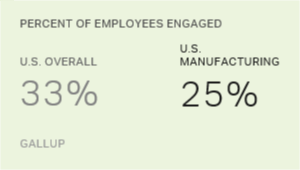PRINCETON, NJ -- A recent ÆéûÜǨû§Poll found 24% of Americans saying they considered getting a new car in the past six months but decided against it. They were most likely to cite broad economic concerns -- rather than the plight of the U.S. automakers -- as reasons for their decision.
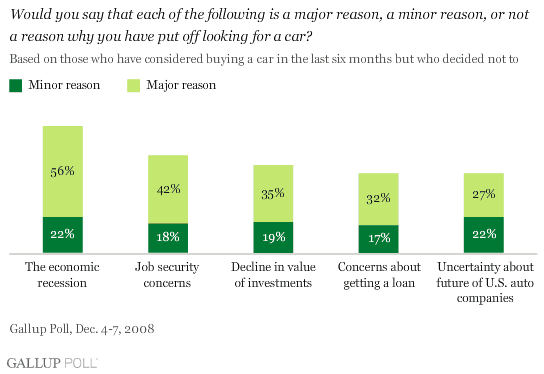
Less than half of those who have dropped out of the car-buying market said uncertainty about the future of the "Big Three" U.S. auto companies was either a major (27%) or a minor (22%) factor in their decision. A majority of these respondents cited the economic recession as a major reason.
The latest USA Today/ÆéûÜǨû§poll also finds that the Big Three's current struggles are not yet acting as a major deterrent to those who in general would consider buying an American car. Just 7% say the possibility that one or more of the Big Three U.S. automakers will go bankrupt would make them "much less willing" to buy an American car. Another 18% say they would be "somewhat less willing," but the vast majority say it would not affect their decision.
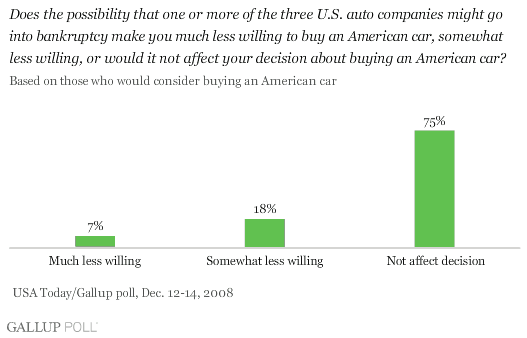
While this suggests that most of the normal U.S. car market would still be in play for the Big Three even as they struggle to remain solvent, the 7% who are much less willing to buy from them at this time, though a small proportion of the total, represents potentially millions of buyers.
However, if one of the Big Three does in fact go into bankruptcy, that company's pool of potential buyers would be limited even further. Thirty percent of those who would consider buying an American car say they would definitely not buy from a company that is in bankruptcy, though the majority of 67% would still consider it.
Buy American?
Overall, 82% of Americans say that, in general, they would consider buying an American car, including 30% who would consider only domestic cars, according to the Dec. 12-14 USA Today/ÆéûÜǨû§poll.
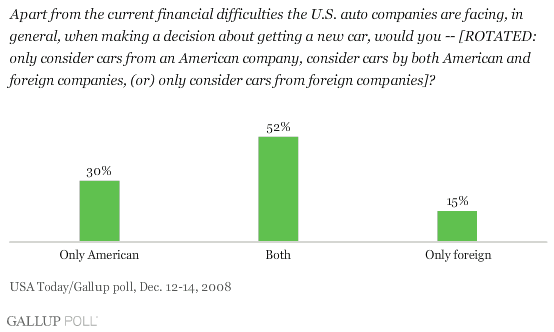
Certain segments of the population are more inclined to buy American cars. Nearly half (49%) of older Americans, aged 65 and older, say they would only consider buying an American car. That compares with 29% of those aged 40 to 64, and 21% of those under age 40.
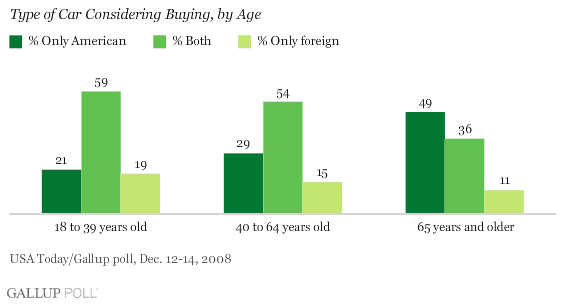
Educational attainment is also related to car preferences: those without a college degree (46%) are twice as likely as college graduates (21%) to only consider buying domestic cars. These effects are evident by educational attainment within age groups, so they do not merely reflect higher educational attainment among younger respondents.
There are also differences by region, with those residing in the Midwest -- the traditional home of the domestic auto industry -- most inclined to consider American cars exclusively (41%).
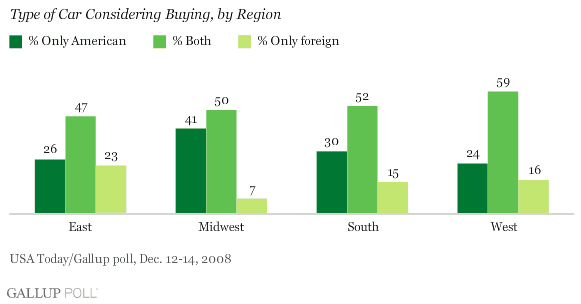
Implications
These data suggest that the broader economic problems are contributing more to the slump in U.S. car sales than concerns about the health of the Big Three U.S. auto companies. But clearly, some proportion of buyers are concerned enough about the health of these companies that it is causing them to factor it into their decision-making, if not rule out U.S. cars altogether.
With the auto companies needing all the help they can get -- and the federal government so far not stepping forward to provide any -- this is not welcome news for the Big Three. However, the news could be a lot worse since most Americans still say they would consider buying American cars, with a significant proportion even willing to do so from a bankrupt automaker.
Survey Methods
Results are based on telephone interviews with 1,008 national adults, aged 18 and older, conducted Dec. 12-14, 2008. For results based on the total sample of national adults, one can say with 95% confidence that the maximum margin of sampling error is ôÝ3 percentage points.
Interviews are conducted with respondents on land-line telephones (for respondents with a land-line telephone) and cellular phones (for respondents who are cell-phone only).
In addition to sampling error, question wording and practical difficulties in conducting surveys can introduce error or bias into the findings of public opinion polls.
